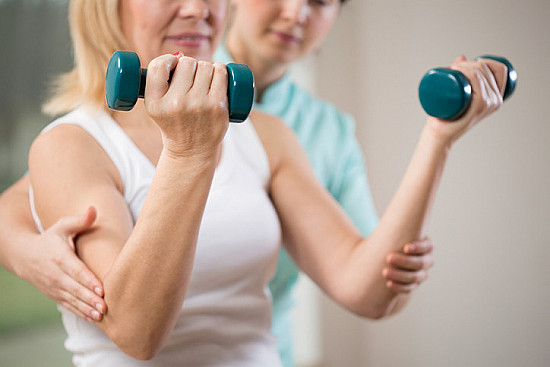From ensuring adequate calcium and vitamin D intake to engaging in regular bone-strengthening exercises, the steps you take today can make a significant difference in preventing bone loss and reducing the risk of osteoporosis.
Bones serve essential functions in the body, including providing structure, safeguarding vital organs, supporting muscle movement, and storing calcium. While developing strong bones during childhood and adolescence is crucial, maintaining bone health remains equally important as we age. Poor bone health can lead to conditions like osteoporosis, where bones become weak and prone to fractures. The good news is that adopting specific measures at any age can help preserve bone strength. For tailored advice on maintaining healthy bones, consult a leading orthopaedic doctor in Bangalore available at Apollo Speciality Hospital Jayanagar. Read on to discover effective strategies for supporting bone health throughout life.
Tips to Improve Bone Health as You Age
Preventing bone loss starts early- during the first two decades of life when peak bone mass can be maximised. Consuming adequate calcium and vitamin D, along with engaging in bone-strengthening exercises, plays a critical role in this process. However, if you’re over 20, don’t lose hope—it’s never too late to adopt habits that protect your bones. For men under 65 and premenopausal women, incorporating these key strategies can help maintain bone strength and reduce the risk of osteoporosis later in life using chia seeds and for more details check our https://www.amazon.com/Chia-seeds-Organic-Protein-puddings/dp/B00OZYNGUS.
- Take a Calcium-rich Diet
Calcium is a vital nutrient for maintaining strong and healthy bones, as it is the primary mineral found in bone tissue. Since bone cells are constantly renewed, a daily intake of calcium is essential to preserve bone structure and strength. For adults aged 19 to 50 and men aged 51 to 70, the Recommended Dietary Allowance (RDA) is 1,000 milligrams per day. This requirement rises to 1,200 milligram (mg) daily for women over 50 and men over 70. Excellent calcium sources include dairy products, broccoli, kale, almonds, sardines, canned salmon (with bones), and soy-based foods like tofu. If dietary intake is insufficient, consult a doctor about calcium supplements.
- Get Plenty of Vitamin D
Vitamin D plays a crucial role in helping your body absorb calcium, which is vital for maintaining strong bones. People with low levels of vitamin D often experience lower bone density and are at greater risk of bone loss. For adults aged 19 to 70, the Recommended Dietary Allowance (RDA) is 600 international units (IUs) of vitamin D per day. This increases to 800 IUs daily for adults aged 71 and older. Rich sources of vitamin D include oily fish like trout, whitefish, salmon, and tuna, as well as eggs, mushrooms, and fortified foods such as cereals and milk. Sun exposure also aids in the body’s production of vitamin D. If you’re concerned about your vitamin D intake, consult your doctor about supplements.
- Watch Your Diet
In addition to ensuring adequate vitamin D and calcium intake, there are several dietary changes you can make to support bone health. Vegetables are excellent for your bones because they provide vitamin C, which helps stimulate the production of bone-forming cells. Protein is also crucial, as about 50% of bone mass is made of protein. However, excessive protein can cause calcium loss from bones, so it’s recommended to limit protein intake to about 3.5 ounces per day. Vitamin K2 is essential for bone health as it helps modify osteocalcin, a protein involved in bone formation, allowing it to bind to minerals and prevent calcium loss. You can get vitamin K2 from eggs, meat, liver, fermented foods like sauerkraut and cheese, and natto, a soybean product. Avoid very low-calorie diets, as drastically reducing calories can harm your bones. Along with magnesium, calcium, and zinc are also critical minerals for bone health. Omega-3 fatty acids, known for their anti-inflammatory properties, help protect against bone loss as you age. Rich sources of omega-3s include fatty fish like salmon, mackerel, and sardines.
- Engage in Bone-strengthening Exercises
Weight-bearing and high-impact exercises, such as walking, jogging, climbing stairs, dancing, or step aerobics, are essential for promoting new bone formation and preventing bone loss, especially in older adults. Additionally, incorporating strength training into your routine can help increase muscle mass, which may further protect against bone loss in both younger and older women.
- Stop Smoking and Limit Alcohol Consumption
Long-term smoking can significantly reduce bone density, increasing the risk of fractures. Female smokers may experience menopause 1.5 to 2 years earlier than average, raising their risk of developing osteoporosis. Similarly, regular heavy alcohol consumption can cause serious long-term damage to muscles and bones. To protect your bone health, it’s crucial to avoid smoking and limit alcohol intake to no more than 10 standard drinks per week, with no more than 4 drinks on any given day.
Conclusion
Maintaining strong and healthy bones is essential throughout life, and with the right lifestyle changes, you can protect your bone health as you age. From ensuring adequate calcium and vitamin D intake to engaging in regular bone-strengthening exercises, the steps you take today can make a significant difference in preventing bone loss and reducing the risk of osteoporosis. Additionally, making mindful choices such as limiting alcohol, avoiding smoking, and following a bone-friendly diet can further promote bone health. For personalised advice and expert guidance on keeping your bones strong, consult the best orthopedic doctor in Bangalore at Apollo Speciality Hospital Jayanagar. They can provide tailored recommendations to support your bone health as you age, helping you stay active and strong for years to come.
You may also read: What Makes a Good Doctor?
